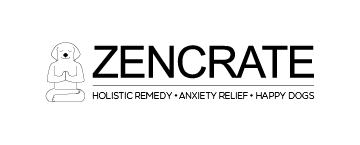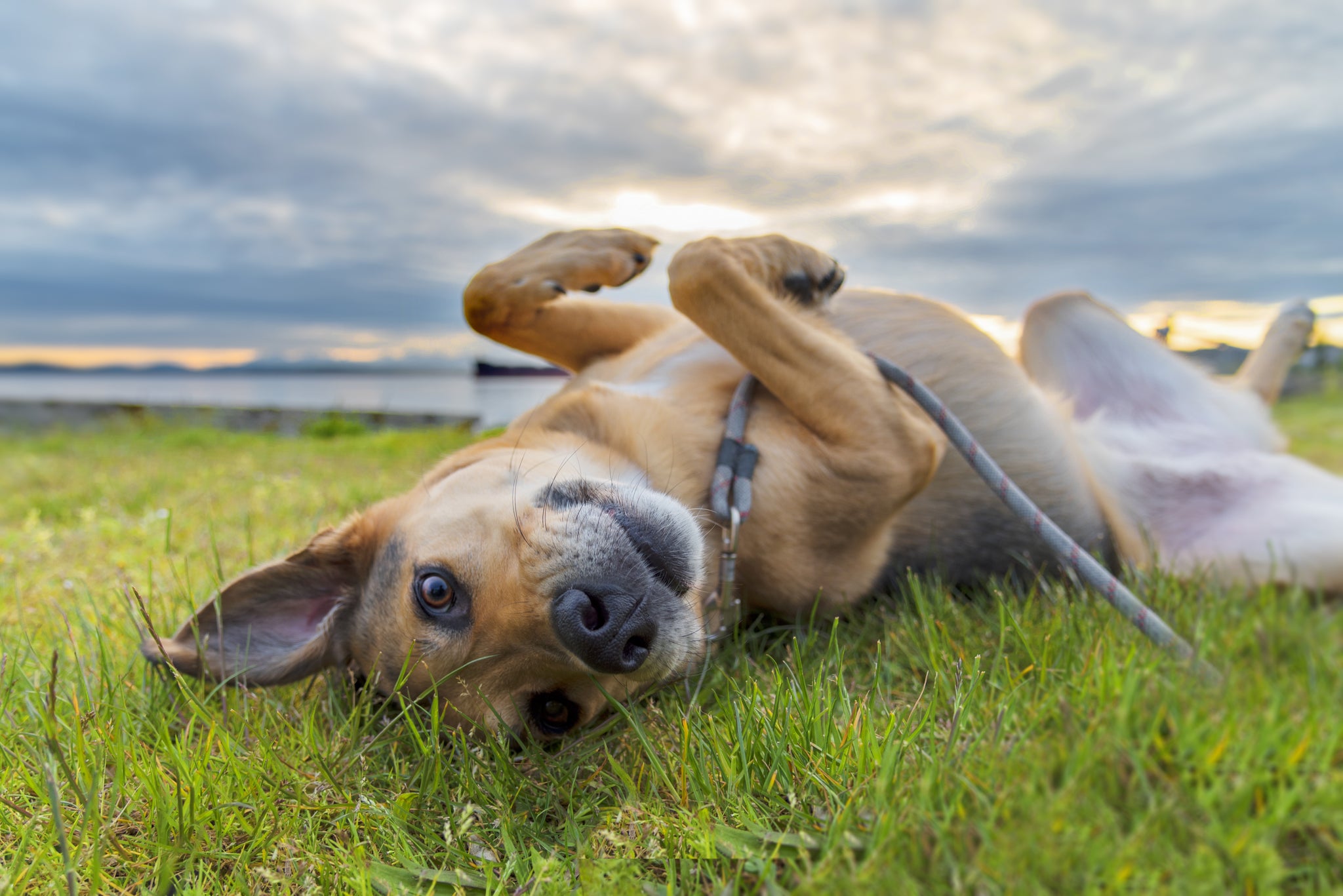Why Does My Dog Like to Roll in Rotten Things on the Ground?
By TB Thompson, DVM
Why do dogs like to roll in rotten things like dead animals on the ground? It’s a very good question. I recall the time I was walking my dog through a lovely green field. She was running off-leash while I fondly gazed at wildflowers and birds. Such an idyllic life!
My reverie was shattered as I noticed my dog had stopped trotting along and sniffed at something in the grass. Suddenly, she slammed her shoulder and neck on the ground and proceeded to roll around in ecstasy. Once I got closer the smell was the first clue that this was not a favorable situation for me. She was grinding some unidentifiable slimy organic matter all over her shiny black fur. My dog was playing wolf.
Communicating with the Pack
Dogs are closely related to wolves, some biologists even want to reclassify them from Canis familiaris to Canis lupus familiaris (wolves are called Canis lupus). The designation indicates just how close a cousin to wolves dogs really are.
Wolves display the behavior of rolling in scented objects such as feces of other animals, dead animals, perfume, and even motor oil. One observer noticed that the wolf who rolled in the scent would be eagerly sniffed by his pack members when he returned. The pack members could then trace the odor to the origin of the scent. Rolling in smelly materials may serve as a form of communication, relaying information about available prey.
There’s another idea that canids (dog-like animals) use this scenting behavior to develop an identifying “group odor.” When they come upon a pile of something they deem desirable, one animal will roll in it and pack members soon follow suit (5). Once all the members of the pack have rolled in the same scenting material, they have a similar odor they may use to identify one another.
Avoiding Parasites and Covering Up
Some people have theorized that dogs roll in rotten stuff to keep parasites away. This is considered unlikely by experts since parasites like flies are actually attracted to those same odors.
Another idea is that dogs are not trying to get the smelly stuff on themselves as much as they are trying to put their own scent over the smelly stuff. Again, experts consider this unlikely since dogs could just as easily use the stronger smell of urine to cover the scent (1).
Disguising Their Own Scent
A more viable theory is that dogs roll in feces or dead animals in an attempt to mask their own scent. This could be useful for purposes of hunting (5). Anecdotal reports tell of wolves preferring to roll in the feces of other, usually smaller, predatory animals.
It makes sense that a wolf would want his “scent signature” to be mistaken for a fox if he’s hunting a moose. The moose would be much more panicked at smelling a wolf than a fox. However, if your poodle is rolling in fox poo, it’s likely she is acting more on instinct than mapping out a plan to bring down a moose.
It Just Smells So Good!
Most scientists agree that dogs and wolves have a sense of smell that is around 10,000 stronger than humans’ sense of smell( 2,3,4). You’d think that would make them want to stay away from rolling in poop, but what smells like rot to us probably smells like delicious brownies to them.
It’s possible that dogs roll in poop and other smelly things just to carry the smell with them so they can enjoy it longer (6). And if one dog enjoys the smell, it’s possible the aroma could be used as an attractant to other dogs like a rotten cologne, of sorts. It’s only natural!
- Patricia McConnell, “Why Do Dogs Roll in Disgusting Stuff?” Patricia McConnell PhD (website), June 1, 2015, http://www.patriciamcconnell.com/theotherendoftheleash/why-do-dogs-roll-in-disgusting-stuff.
- DianneBeidlerWalker, James Cornelius Walker, Peter James Cavnara, Jennifer Leigh Taylor, Duane Howard Pickel, Sandra Biddle Hall, Joseph Carlos Suareza. “Naturalistic quantification of canine olfactory sensitivity,” Applied Animal Behaviour Science 97, Issues 2–4 (May 2006): 241-254, https://www.sciencedirect.com/science/article/pii/S0168159105002194.
- Walker JC1, Hall SB, Walker DB, Kendal-Reed MS, Hood AF, NiuXF.“Human Odor Detectability: New Methodology Used to Determine Threshold and Variation,” Chemical Senses 28, Issue 9 (Nov 2003): 817-26, https://academic.oup.com/chemse/article/28/9/817/519578.
- Peter Tyson, “Dogs' Dazzling Sense of Smell,”NOVA scienceNOW, PBS.org, October 4, 2012, http://www.pbs.org/wgbh/nova/nature/dogs-sense-of-smell.html.
- RichardGray, “The Many Reasons Why Dogs Might Roll in Smelly Poo,” Earth, BBC.com, June 8, 2017, http://www.bbc.com/earth/story/20170608-the-many-reasons-why-dogs-might-roll-in-smelly-poo.
- Stanley Coren PhD., DSc, FRSC. “Why do dogs roll in garbage, manure,or other smelly stuff?”Psychology Today (website), July 29, 2009, https://www.psychologytoday.com/blog/canine-corner/200907/why-do-dogs-roll-in-garbage-manure-or-other-smelly-stuff.


